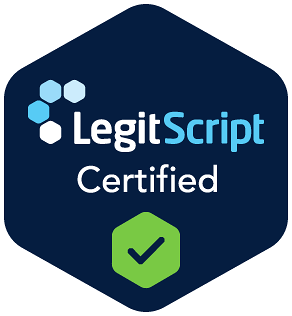Conditions
Obsessive-Compulsive Disorder

Obsessive-compulsive disorder is a condition where you feel compelled to perform certain acts repeatedly because of anxiety or certain fears. For example, you may be obsessed with the fear of getting an infection, and to deal with this fear you repeatedly wash your hands. You may be aware of what you are doing, but your fear dominates your reason, and the anxiety and stress produced can only be relieved by performing the compulsive act.
Depression

Depression is a mental health disorder or mood disorder characterized by a constant feeling of sadness or loss of interest in daily activities of life. It is different from low moods that people normally experience as symptoms can last from weeks, months, or years.
Generalized Anxiety Disorder

Generalized anxiety disorder is a mental health disorder characterized by being constantly worried and anxious about matters related to money, health, family, school, work, or similar issues without any apparent reason. The condition can interfere with your ability to perform routine activities of daily living. The risk of developing this disorder is highest between childhood and middle age.
Post-Traumatic Stress Disorder

Post-traumatic stress disorder or PTSD is a psychiatric disorder that can occur when a person experiences an unexpected traumatic event such as a natural disaster, life threat, terrorist act, gun violence, rape, sexual violence, or other physical assault. Post-traumatic stress disorder was formerly known as shellshock or battle fatigue syndrome since the disorder was first noticed in war veterans.
Borderline Personality Disorder

Borderline Personality Disorder (BPD) is a mental health condition that affects a person’s thinking and the way they feel about themselves and others. People with this condition find it hard to be in relationships and have frequent displays of emotional instability. This condition commonly appears during late teens or adolescence. BPD is seen more in women than men.
Postpartum Depression

Postpartum depression is a persistent low mood that arises due to a complicated mix of physical, mental, and behavioral changes in mothers immediately after they give birth. It is also linked to the social and psychological changes that come with giving birth. About 1 in 10 new mothers experience postpartum depression.
Adult Psychiatry

Adult psychiatry is a branch of medicine focused on diagnosing, treating, and preventing mental health disorders in adults, typically individuals aged 18 and older. An adult psychiatrist is a medical doctor who has completed medical school, internship, and residency in general medicine, as well as an additional 3 to 5 years of training in psychiatry.
Procedures
Monarch eTNS® for ADHD

The Monarch eTNS® (External Trigeminal Nerve Stimulation) System is the first FDA-approved non-invasive medical device used as a treatment for pediatric attention-deficit/hyperactivity disorder (ADHD).
Prism Neurfeedback for PTSD

PRISM (Personalized Real-time Interactive Self-Modulation) is an efficient neurofeedback therapy designed to alleviate symptoms of chronic PTSD. It is the first self-neuromodulation device for PTSD approved by the US Food and Drug Administration (FDA).
Traditional Deep TMS

Transcranial magnetic stimulation is an advanced, non-invasive treatment for depression that involves stimulation of the nerve cells in your brain by the use of magnetic fields. This technique is generally used in cases when the patient fails to respond to other treatment methods for depression.
Accelerated Deep TMS

Accelerated Transcranial Magnetic Stimulation (aTMS) is a non-invasive neuromodulation technique that involves delivering magnetic pulses to specific brain regions, aiming for localized neuronal activation or inhibition. Unlike traditional TMS protocols, accelerated TMS delivers multiple sessions per day to achieve comparable clinical outcomes in a shorter timeframe.
GammaCore™ nVNS for Anxiety and PTSD

The gammaCore™ nVNS is typically recommended to treat anxiety and PTSD when other conservative treatment strategies such as medications or injections have not been effective or when individuals do not wish to take medications or injections due to undesirable side effects.
BrainsWay® TMS Study

BrainsWay® is a global medical company that specializes in developing cutting-edge medical devices that help advance the field of mental healthcare. The BrainsWay® TMS study refers to an FDA-approved non-invasive treatment procedure conducted using BrainsWay’s Deep Transcranial Magnetic Stimulation (Deep TMS) technology.
Spravato® (Esketamine)

Spravato® is a nasal spray formulation of esketamine, a derivative of ketamine, which has been used for decades as an anesthetic. Esketamine acts on the N-methyl-D-aspartate (NMDA) receptor in the brain, which plays a role in mood regulation. Unlike traditional antidepressants, which target neurotransmitters such as serotonin and norepinephrine, esketamine works through a different mechanism, leading to rapid onset of antidepressant effects.
SAINT™

Stanford Accelerated Intelligent Neuromodulation Therapy (SAINT™) is a novel treatment protocol developed by researchers at Stanford University for individuals with treatment-resistant depression (TRD). It is an enhanced form of repetitive transcranial magnetic stimulation (rTMS), a non-invasive method that uses magnetic fields to stimulate nerve cells in the brain to improve symptoms of depression.









